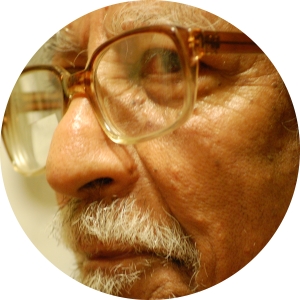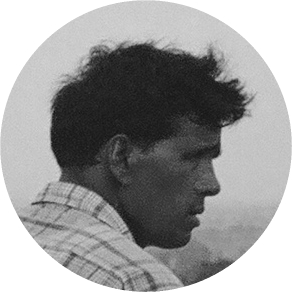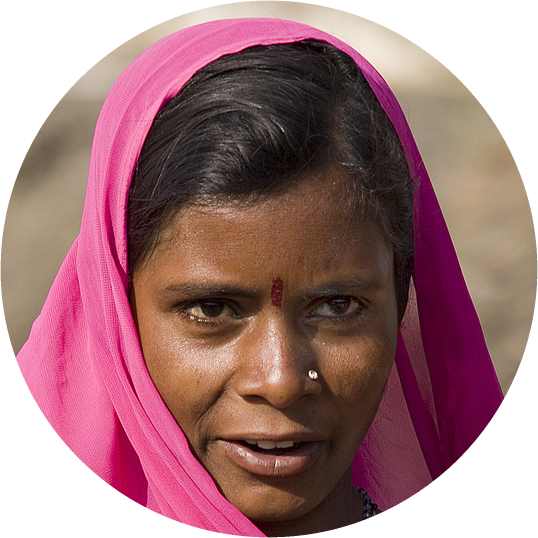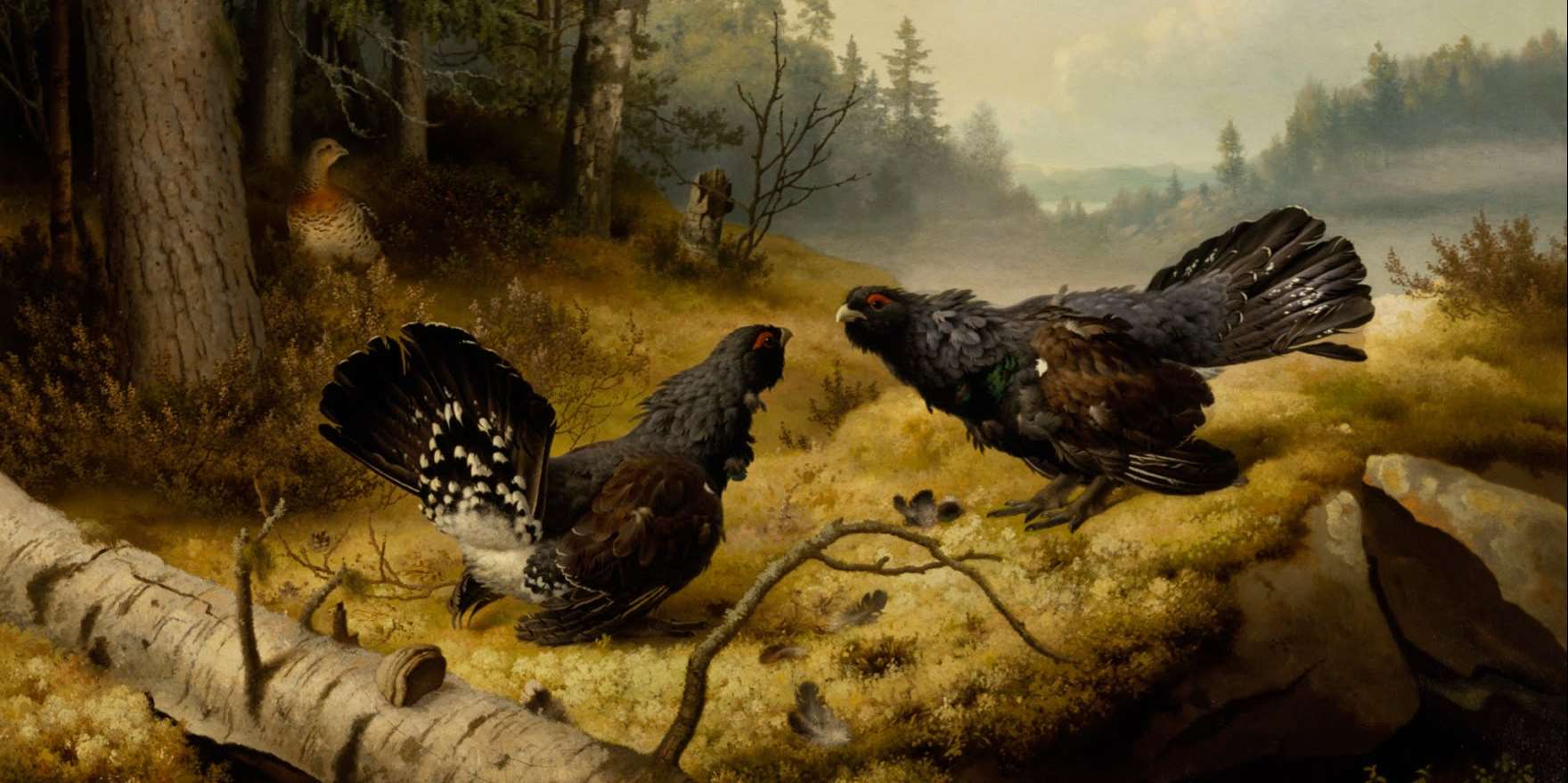Chapter 14
(Calcutta, India, 1835)
The road from Sonarkhali across the Pargannas to Calcutta could be fraught with all sorts of danger, none of the oft-repeated assurances to the contrary that Raju gave Shanti in an attempt at stopping her fretting could hide that. He knew that she did not believe the stories that he told her about being immune to Dakshin Rai’s claws. A joke never did anyone any harm, but still he had the instinctive certainty that Bhagwan would never let him go the same way as Baba. He had never heard of two members of the same family become victims of the man-eater, although he knew of a banyan tree in the Parganas which had been struck twice by lightning, whatever people said. Still every time he was on his way to Calcutta, he dreaded coming face to face with dacoits. It seemed a miracle that so far he had managed to avoid them. The closest shave was about a year ago. It was a pitch black with no moon, and he had just gone past Habra when a strong gust blew out his lamp. He was about to swear when he heard a noise and at the same time saw a light. Dakus, he had said to himself, and I don’t even have a light to guide me to safety. Then he realised that Devi Phoopi must have been watching over him, for if his light was shining, the dakus would have surely spotted him. He took evasive action and held his breath, praying that the cow would not suddenly decide to moo. Bhagwan be blessed, the ghai stayed silent as a fish. Naturally! It was the proof, if proof was needed that he was under Phoopi’s protection. Then he began to hear the dakus speak. In Bihari Bhojpuri of course. He had heard that the highwaymen were often the folks from the land of his ancestors.
‘I told you I saw nothing, madr chhott, you must have imagined it all.’
‘Shut your arsehole, shit-eater, I saw an oxcart in the dim light of an oil lamp, I tell you.’
‘Must have been a ghost,’ a third voice chipped in.
‘You really should lay off the ganja madr chott motherfucker.’
‘Bengt chhott, madr chhott!’ someone spat out for no obvious reason, and another man sneezed.
Raju’s heart was beating in his calves as he realised that he was no match for three or four colossal Biharis. The voices grew louder as the men drew nearer, and he said to himself, Provided I don’t suddenly feel the need to sneeze too. And as usual, having formulated that hope, he was immediately seized by an irresistible urge to do just that. Phoopi Devi, he begged silently, please control my sneeze. She was probably not able to, but saw to it that a gust of wind suddenly began blowing, and he was able to sneeze in its wake. The men were now almost close enough to touch, and they kept arguing and swearing. Suddenly they had slowed down, as if sensing that their quarry was at hand, and kept moving in a circle.
‘Do you think he is some merchant laden with goods?’
‘What an idiotic question? You are speaking through your mother’s chhott.’
‘Why don’t you bengt chhott sisterfuckers stop arguing and use your energy trying to locate the madr chhott instead?’
At that point the cow began to feel restless as if its legs were full of ants.
‘What was that… did you hear that?’
‘Some rat or snake,’ one of the three answered casually.
‘I hate rats! I don’t mind snakes, but madr chhott rats… ya Bhagwan, how I hate them. Let’s not stay here.’
‘I can feel the presence of the madr chhott right here,’ an authoritative voice pronounced.
‘Stay if you want to be eaten alive by rats, I am leaving.’ And the men, defeated by the dark finally put some distance between themselves and Raju. He breathed a sigh of relief, and the cow made a tentative moo at the same time. The three men stopped in their tracks. ‘What was that? Did you hear it?’ Two voices answered, ‘Rats!’
That was a year ago. Phoopi Devi was clearly watching over him. He felt confident that she would never let him down. He was halfway between Hasnabad and Bashirhat when the aroma of Shanti’s cooking in the morning wafted into his nostrils, as smells sometimes do, from nowhere. It was funny about the memory of scents and odours. Years after having smelled something — not necessarily nice — and not thinking about it either, a smell can suddenly invade your nostrils. The seductive aroma of Nani Laddoo’s fine sweetmeats can magically spring forth twenty years after the event, just as if she had just landed from her small boat with a thali of her sweetmeats finely balanced on her head. As unfortunately could also the stench of dead carcasses on an island when they went honey gathering. But Shanti’s culinary masterpieces were a daily occurrence, and the smell did not take him by surprise, specially as he had been working an appetite. He had told himself that he would stop for a bite, but not yet, but once the aroma was there, there was nothing he could do. It was like the thought of Shanti’s body opening the floodgates of impure thoughts which invariably resulted in the little dog behind his dhoti starting to wag its tail.
He stopped the ghari in a small clearing under a massive tamarind tree by a stream, got off and stroked the cow on the head. He fetched some water in a rusty pail for her, and she drank, but with no great relish. She cannot be well, poor thing, he reflected. Although there was lush vegetation for her to indulge in, she made no effort to bend down and serve herself. Come, on, Mr Cow, Ghaiji, he said, it’s for your own good, you need some strength, we have a few more days of this before we’re done. He pulled out a few strands of grass and remembering how he used to coax the little ones to eat, he made some funny sounds with his mouth and managed to attract the attention of the tired animal, and she finally condescended to open her mouth to take in a small tuft which she started chewing with a singular lack of enthusiasm. You’ll eat when you are hungry, he shrugged, and left her alone. He lit a small wood fire and warmed his dal, he hated cold dal, it did not matter about rice or tarcari. When the dal began boiling, he tipped some rice in it, smacking his lips as he discovered the fried saltfish that Shanti had obviously not failed to pack in; she had fried the fish exactly right, adding the right amount of salt, haldi and crushed chillies. He had filled his lota with cool water from the stream, and leaning against the tamarind tree, took a deep breath, was about to convey the first handful of food into his mouth when he saw three figures emerge. Ghosts in broad daylight! But he knew they were no ghosts, for spirits from the netherworld had their feet turned the other way round, did not touch the ground, but floated just above it. Dakus, he deduced. He knew that they had seen him. Each one had a thick club in one hand, and Raju had no doubt that they also had knives hidden on their bodies. They were walking towards him unhurriedly, in the certainty that there was now no chance of his escaping. He stood up and in his most friendly voice, he shouted in Bhojpuri, ‘I was just about to start eating my meal on my own… Aren’t I lucky to be able to share it with three Biharis brothers?’ The men seemed taken aback by this overture and slowed down momentarily. They were now hovering over him but the menace was more subdued.
 Photo Credit:
CC-BY Frances Voon
Photo Credit:
CC-BY Frances Voon
‘Do wash your hands and we can begin, you must be starving, I know I am,’ he said with fake bonhomie, having decided that volubility would be the best weapon against those sinister pahelwans. By now, the men seemed to have inhaled the fumes coming out of the offering, and he went on, ‘there is more than enough for all of us. And your bhabi also packed in some bhetki vindaloo acchar… you have to taste it to believe how good it is… your sister-in-law Shanti thinks of everything… Raju, she says, I am putting in some bhetki acchar in case you have the good fortune of meeting some wayfarers on the road… she is like that… thinks of everything… do sit down. It does not matter about washing your hands, I am sure they are clean…’ The men said nothing, but looked at each other dubiously.
‘How come you speak Bhojpuri?’ one of the men asked, ‘are you Bihari?’
‘You sisterfucker, didn’t you hear what the motherfucker said?’
They were clearly the same men from last year. Raju laughed immeasurably at this.
‘I hate those fucking Bengalis,’ one man said, spitting on the ground. Raju smiled, and made a disparaging grimace, which he knew was expected of him, on hearing the word Bengali.
‘My father was from Gaya,’ he said, and suddenly he decided to lie about the rest, ‘I was born there… Allapur… Bihari to the core, that’s me…’ Unsure as to how that had gone down, he immediately added, ‘But here I am nattering on whilst my brothers are starving, I entreat you.’ And without a smile or thank you, they plonked themselves down, served themselves and began to eat, noisily and quickly, obviously with great enjoyment. Raju was happy to see them enjoying Shanti’s cooking, even if he knew that he might have difficulty feeding himself later.
‘You gentlemen are… eh… travellers?’ Raju said tentatively.
‘Listen sisterfucker, you know very well who we are, so cut the crap, we are dakus, and we plan to kill you.’ Raju was surprised by his own reaction. He shook his head and burst out laughing, as if the men had told him the funniest story he had ever heard.
‘But you can’t do that, brothers, you must not, not after having agreed to accept my nimak.’
‘Nimak?’
‘In civilised places like our beloved Bihar, when you accept food from someone, you have eaten his nimak… eh… the salt in the food, if you see what I mean.’
‘So?’
‘Men of Bihar are not Nimak haram like those ungrateful sisterfucking Bengalis here my friends. If you had wanted to kill me and rob me, you should have done it first thing, then if you eat my salt… because once I am dead, I own nothing, the nimak isn’t mine. But as you have eaten my food, your soul will be damned for eternity if you do me any harm.’ One man shook his head, refusing to believe this nonsense, but the one who was obviously the leader was lost in thought. The first man was twiddling his club in his itchy hand, clearly in readiness for an assault.
‘Am I not right, Sarkar?’ Raju asked the chief, ‘once you have eaten a man’s nimak—’
‘You Choottias should have thought first,’ the chief said to his two companions, ‘but ben chhott sisterfuckers, you can only think of your stomach… The man is right.’
Raju then offered them some bidis and they relaxed, sat down like old friends, passing the smoke round after inhaling it with great intensity. And when one of the men asked him a couple of questions, he started telling them the story of his life on the Sundarbans, the tigers, the honey and the men listened enthralled. The battle is won, Raju said to himself, truly when an aunt becomes a Devi and looks after you, what harm can befall you? But the chief thought he had a final arrow in his quiver.
‘My friend,’ he said suddenly, ‘if we steal from you and beat you up, I understand that it would be all wrong, as you say, we Biharis are not nimak haram.’ Raju nodded uneasily.
‘But supposing… just supposing, you understand… supposing you were to give us your merchandise—’
‘But why would I do that? We are friends, we have shared a meal together—’
‘Yes, yes, I know that, but we are bad people, we might forget the rules of hospitality and attack you all the same—’
‘I know that you won’t,’ said Raju, making a superhuman effort at laughing at the notion, ‘we are Bihari brothers—’
‘Exactly,’ said the chief, ‘we are Bihari brothers, and you won’t let us starve, will you? You see we make an honest living as Dakus, we do not go about beating women and children, we hurt nobody but our victims — it’s the only thing we can do — and if we do not have anything to show for a night’s work, then we starve, my Bundhu! So I suggest you give us some of your wares of your own volition.’ Raju laughed, again with fake merriment, and did a lightning quick mental calculation at the same time.
‘But you didn’t think I was going to let you go away empty-handed? I was already thinking that I could explain to my Sarkar, that I had an accident on the road and lost a big bag of onions…’ The Chief stared at him with his piercing eyes.
‘And… and a b-bag of dried fish…’ he stammered. The Chief did not indicate ecstasy, on hearing this.
‘And a large demijohn of coconut oil.’ The Chief stared at Raju and suddenly burst out laughing.
‘And all given under no duress?’ asked the Chief.
‘No duress at all, I am the one making the offer. No convention broken.’
‘Throw in an extra bag of aloo, eh?’ Raju nodded.
The Dakus took possession of the agreed articles, and left singing bawdy songs. He waved them goodbye heartily, but the moment they were out of sight, he collapsed on the ground and cried. Dukhdeo is going to have the skin off my arse now, he is never going to believe me, he’ll say I am dishonest, he’ll say that I have sold those things and pocketed the money, he’ll never trust me ever again. Without his trust how am I going to steal from him? We’ll won’t survive, my wife and kids.
Wearily and with a heavy heart he set forth for Barasat. Where was Devi? he wondered, but his loyalty to the dead aunt was such that he immediately answered himself: Were she not around, I would never have got the idea about how to trick those… madr chott… He aimed at stopping outside the Mandir there, where on any given night there were pilgrims and worshippers, thus making it less obvious as a target for dacoits.
Nothing much of interest happened on the rest of the journey. He made an effort not to let the recent encounter with dakus depress him overmuch. He knew that there was always a way out. Over the years he had played his cards well and had earned the trust of Sukhdeo. Provided that ogress Lalita did not put bees in his ears.
When he reached Howrah, he saw the various people he had dealings with. It was always a lengthy process negotiating with the wholesalers, but he rather enjoyed the banter and the bravado.
‘So what happened to your onions this time?’ asked Mr Bannerjee, taking a few bulbs in his hands and rolling them over playfully, ‘did you put feathers in them? They are so flimsy.’
‘Shri Bannerjee, what are you saying, sir? We do not put feathers, but small stones to make them heavier so we can charge more, how come you cannot feel them?’ The man laughed, and extended his open palm for Raju to clap. He liked the boy, he was a cheerful young rascal. They argued for a bit, and Bannerjee sent for some chai which they drank noisily. They agreed on a price for the 12 bags, and Raju carefully put away the sixty six rupees the older man gave him. Maybe I’ll tell Sukhdeo that the onions fetched sixty five rupees for the 13 bags, five rupees per bag, and then I can still pocket the extra rupee. Would the boss swallow that? The man had his ears close to the ground and was usually well-informed. There’s plenty of time to think of some foolproof scheme. Maybe in the light of what happened I’ll have to forego my little bonuses this time.
When he arrived at the Gujarati man’s stall, the round-faced jovial looking man spat a massive blob of betel mush on the ground, saying sorry as some droplets landed on Raju’s dhoti.
‘Namasté, Chacha Mahendra, Saroo Chhey,?’ Raju said using the few Gujarati words he knew.
‘Saroo Chhey, Maroo Chhey, poyka.’ the old man laughed happily, he loved being greeted in his own language. He also liked Raju, having known him ever since he was a teenager.
‘We were told there is a great shortage of coconut oil in town,’ said Raju who had heard nothing of the sort, ‘so I thought I would take my stock to Chacha Mahendranath first.’ The old man did not believe him for one second, but nodded happily, and gave him his open palm to clap. So I was right. I’m gonna get a good price for the oil and would be able to absorb the loss of the one missing amphora. They sat down opposite each other, and the Gujarati man sent his boy to get some chhai from a vendor who had recently started the business of selling tea in a ramshackle stall at a stone’s throw from the Mahendranath’s shop. The two men sat down on canvas chairs which had become fashionable in Calcutta. The host got rid of his sandals and put one bare foot on the other knee and began stroking it and scratching between his toes. From the shop they could see the traffic on the river Hoogli. There was a large number of crafts of varying shapes and sizes sailing up and down, with brown men in dhotis moving and gesticulating all the time.
‘I hear a big Angrezi ship is coming in later today,’ Mahendra tells him in excited tones. Raju loves looking at these big sailing ships going to unimaginable places, and welcomes information about them. The chhai comes and they start sipping it noisily.
‘This ship coming in,’ says the Gujarati man, ‘is picking up people to take them to faraway countries.’ And he explains that the Angrezi had many colonies, like Mareeshush, Feejee, and Damrara, and wanted men to go work in those countries. The people who want to go, he explained, do not have to pay anything, they travel for free, but they have to work on the land there for a number of years, with food, clothing and housing guaranteed. Then when they have become rich, they can come back and do what they want, with money in their pockets, he says, moving his head left and right, opening his eyes wide. Thousands of people are leaving every month, he adds, and he had been told that a small trader like himself could easily trade with the migrants, selling them the things that they needed, and make a handsome living. He was certainly thinking of packing it in here to go seek his fortunes in the colonies.
‘Where would you like to go?’ Raju asks.
‘Mareeshush or Feejee,’ says Mahendra without thinking. He meant Mauritius or Fiji.
Suddenly there is a big commotion, and people begin to shout excitedly. It turns out that the English ship had just been sighted, and was now entering the mouth of the Hoogli, and coming up river to the port. The two men lean forward and see the majestic Startled Fawn sail in.
‘Do you think they will take somebody like myself…’ Raju ask. Let me see, says Mahendra laughing: two sound arms, two good legs, good eyes… arrey, Raju my boy, they will receive you with open arms. And he, impulsive as ever, having never once until now contemplated leaving his little village, decides there and then that he would be on that boat before the year was out, although he says nothing. Finish with this wretched life, always depending on the whims of the ungrateful Dukhdeo, dakus and cyclones. What was there in Bengal for him? It was not even the land of his fathers. He loved the Sundarbans, but when you cannot even provide for your wife and children…
For the first time since he left Roshankhali, he felt the pain of Shanti’s absence. It will be at least five more days before I will see her again, he said to himself. And mischievously he touched his hardening organ. How am going to live with this for four more days? he asked himself aloud. He made up his mind to do what had to be done in record time. Buy the long list of stuff which the astute businessman needed for resale to the villagers at an exorbitant profit. People think I am extortionate, Sukhdeo often explained, but what they don’t bear in mind is that a lot of the stuff I get in for you people often remain unsold in my godown — a complete untruth!
Having got all the stuff he needed, he decided to follow Sukhdeo’s instructions, never do tomorrow what you could have done the day before yesterday.
He set off at first light next morning, hoping to reach Kalyanpur before sunset. The cow was not in great shape, but she did not have a limp or anything. She’s just a lazy old thing and needed to be coaxed and cajoled all the time. Still they proceeded at a fair rate, and managed to get as far as Malikpur before night made it impossible for them to continue.
He slept in the ghari, wrapping himself in some old gunny bags as the night turned out quite chilly. In two days I will be in the Pargannas, he said to himself. Bhagwan give me the patience to endure being away from my lovely wife with this big protuberance between my legs that won’t go away. Will it even allow me to sleep? I’ll have to tell Sukhdeo about the Bihari gangsters, there is no other way. I’ll tell him that I could have run away to save my life, but instead I tried to use my wits to safeguard his interest. And the price to pay was minimal. He will have to believe me, he knows I am honest… well he believes I am anyway.
He woke up at first light and decided to hit the road promptly so as to make sure he got home before sunset tomorrow. He had a long journey ahead; the roads were rough and uneven; you had to negotiate roots and rocks, potholes and subsidence. And then there was the dreary Pargannas to contend with before the cosy familiarity of the Sundarbans. He knew that the unfortunate encounter on the way out did not preclude another similar disaster on the way back. He could not see how he could get away with it a second time. He kept half the money hidden in a small frayed bag dangling negligently under the ghari, the top of which was filled with grain as a special treat for the ghai. The other half he kept under his seat where he knew any prospective attacker would look straight away. His thinking was that highwaymen would know that a man coming from Calcutta would have been going there with goods for sale, and would have money on his way home. They would obviously never leave him until they had found his takings. If he hid all the money, the bandits would keep looking until they found it, never in a million years would they have shrugged and accepted that there was nothing to rob. In frustration, they might even kill him. So if he let them find half the loot, there was a chance that they might be persuaded that that was the lot and leave him with the remaining half, and his life to boot.
But again, Devi Umma must have been watching over him, for the feared robbers were put off scent by her vigilance, but there was nothing he could do to coax the ghai out of her torpor. She would simply proceed at her own pace and when Raju got down to talk to her, urging her to rush a bit, explaining how hard it was to keep body and soul together when one had to contend with a massive erection, she simply stared at him with her cow’s eyes and made no effort to change her speed. Nothing doing, Raju conceded, but they still managed to reach Sonarkhali before sunset on the tenth day. Sukhdeo and Lalita looked at them in surprise.
‘We were not expecting you until tomorrow night,’ Aunt Lalita said suspiciously.
‘I hope you did not push the poor cow beyond her limit,’ said Sukhdeo, ‘we warned you that she was tired and old.’
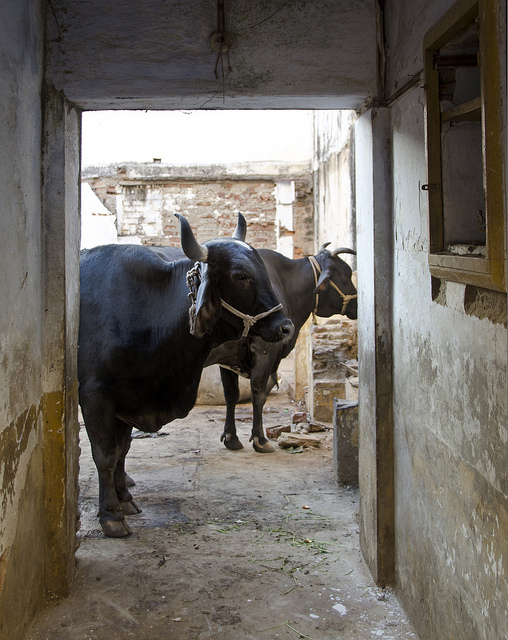 Photo Credit:
CC-BY-NC Eric Parker
Photo Credit:
CC-BY-NC Eric Parker
‘You also said not to waste time,’ thought Raju, but thought it impolitic to say so.
Raju suddenly noticed how frail and thin the cow looked. She was foaming at the mouth and no sooner had he detached her from the cart than she plonked herself on the ground. When he rushed to get her some water, she turned away. As a rule she was up to two buckets of water on these occasions.
‘No, I forgot, I gave her a big bucket of water just half an hour before we got home,’ he lied, ‘no wonder she is not thirsty.’ Sukhdeo pursed his lips and shook his head wearily. Aunt Lalita began fidgeting, and had to make a great effort not to lash out verbally at the young man.
‘I had a stroke of luck on the way,’ Raju said negligently, looking away, and casually he mentioned his misadventure with the dakus. Sukhdeo exploded. What did he mean a stroke of luck? There he, Sukhdeo was going bankrupt and he called this luck. Raju expounded, and ended up with the final transaction whereby he had felt obliged to hand over some of the produce to the Bihari badmen.
‘And you call this a stroke of luck?’
‘Of course,’ replied the crafty Raju, ‘I managed to salvage the bulk of the merchandise.’
‘Lies!’ shouted Lalita, ‘don’t believe a word of this, it’s all lies! He has been in league with those badmash for years now, I have been telling you all along, but you are never believing me, the word of a fellow who doesn’t even posses the skin of his arse are meaning more to you than mine!’
‘Arrey choop!’ said Sukhdeo, be quiet, ‘who says I am believing him?’
The two spouses quarrelled, and Raju was relieved to have the pressure momentarily lifted from him, but unfortunately it was not for long.
‘You have to deduct the money from his earnings,’ Lalita said with great finality.
‘And what will my children and my wife live on? Those goondas could have killed me and all you think about is your money.’ He felt that this could not be left unsaid.
Raju felt that as long as the wife was around, there was no way of talking Sukhdeo out of his insistence that he be made to pay for the shortfall. He made a non-committal grunt and turned his back on them and left.
As it was a moonlit night, he felt able to continue the journey home by boat, and reached Roshankhali in the middle of the night. After all his travails and upsets, the moment Shanti opened the door, he collapsed in her arms and cried like a baby, telling her his woeful tale incoherently. She hardly understood what had happened, but felt that this was a major blow, for never had she seen him cry so disconsolately. She bathed his feet and washed him with a wet cloth, gave him a clean shirt, and comforted him like a child. She made chai with the milk that she had been saving for his arrival for some days, keeping it from going bad and at the same time making it thick and tasty by dint of boiling it two or three times a day. The milk having thickened, acquired a slight burnt taste, and made the tea extra delicious, specially with one crushed cardamon in it, just as her man liked his tea. She was expecting a big broad grin on his face as she came back with it, but the poor exhausted man was snoring like a storm beginning to brew. She sat by his side, watching him tossing right and left uneasily. Suddenly he woke up in a panic, not knowing where he was, shouting ‘the ghai has run away, the ghai has run away!’ Then he shook his head and smiled. I was having a nightmare, he said apologetically. Drink the chai, she urged, having dismissed the alternative of going back to warm it up as she feared that he might fall asleep once more. In any case it was still reasonably warm and he drank it with great relish, sipping it in noisily.
‘Oh my rani,’ he said, ‘no one makes chai like you… all my woes are dissolved in its perfection.’ Suddenly he remembered why he had been in such a hurry to get home, and felt a physical response to this. He smiled, and Shanti, reading her man like an open book smiled back, pinching her lips and shaking her head sightly as a mark of pretend disapproval. She huddled up close to him and gently caressed his back, getting hold of a small chunk of flesh between the two shoulder blades between her thumb and her index finger, and pinching it lovingly. He introduced his hand under her blouse and the touch of her bare skin made him shudder with excitement.
‘Every single day I thought of this moment, when you and I would be one, and we would celebrate our reunion like this.’
‘You are a bad man,’ she giggled.
The children were sleeping soundly. He stood up, walked towards them and bending down, he rubbed his cheeks against theirs. Then he came back, and Shanti, who was lying on the mattress raised her arms to wrap him up. Dukhdeo can go to hell, he said to himself as he slipped into those welcoming arms.
It was an accepted practice that after a Calcutta trip, one was entitled to a day’s rest at home, so Raju was in no hurry to get out of bed that morning, but thinking it was the middle of the night, he was tossing sleepily when he heard Shanti talking to an excitable Sukhdeo. He jumped out of bed in a confused state. It had always been like this, when he got out of bed, for the first minute or so, he had no idea who or where he was. He would tense up his muscles, and if anybody was out to harm his family, they ran the risk of having all the bones in their body turned into haldi powder! Chacha Sukhdeo, he said, grinning, what can you want in the middle of the night?
‘Arrey, stupid boy, now look what you have done,’ wailed the older man, ‘the cow is dead.’
‘Poor ghai!’ said Raju, feeling sorry for the poor beast, for he had known Roshni for years, and the two of them seemed to have a mystical understanding of each other. Whenever he had to take her to Calcutta, he would walk towards her, and she would let forth a low moo and lift her head up, waiting for him to take an ear in each hand and fondle it, and stroke her wet nozzle. On the way when the fancy took him, he would get off the ghari, and she would just toddle along, and he would prance about, singing to her, dancing around her, giving her a pat now and then. ‘She was old,’ he sighed.
‘It’s your fault!’ accused Sukhdeo. Raju knew exactly what the boss meant, knew that he had pushed the old thing too far in his attempt to be home a day early to indulge in his carnal passion. But he put on such an act that even Sukhdeo, reinforced by Lalita’s certainties though he was, was invaded by doubt. ‘My fault, Uncle? How can you say that? Nobody treated Roshni better, gave her water even before myself, fed her grass and grains… How can it be my fault?’
‘I… eh… we warned you, told you to take it easy, not to push her, and now she is dead, and it’s your fault.’
‘Well, if uncle says it’s my fault, I have to come bury her…’
‘Arrey, chhootya, bury yourself,’ Sukhdeo bellowed so loudly that Deep and the girl began crying. ‘Make them shut up,’ ordered Sukhdeo relentlessly. Raju’s Pa’s so-called best friend, had never before called him a chhootya, and that hurt. Neither was he in the habit of swearing in front of Shanti.
‘So, what else is there to do?’ he asked, feeling a painful lump in his throat. Surely Dukhdeo was not going to ask him to pay damages.
‘Uncle,’ he said, ‘I’ll come cut the cow, and we can sell the meat to the Musselmans, telling them it’s halal—’
‘Madr Chhott, the whole village knows she is dead, why are you talking such rot?’
‘You say it’s my fault, right… I’ll come dig a hole and bury her.’
‘I always say, when a man makes a blunder, he must pay for it.’ Surely he did not mean literally. Money?
‘And I cannot believe that story about your being attacked by goondas, those bastards would have taken everything—’
‘No, uncle, I was not attacked, I explained that. I tricked them, I saved the bulk of your goods—’
‘Choop! First you steal from me, next you want a medal. But listen to me, I am known throughout the region as a fair man — a tough man, yes, but fair, right?’ He did not give Raju the opportunity to agree or disagree with him. The latter thought it expedient to produce a non-committal cough.
‘Your aunt Lalita… hum… also a tough woman, but known for her piety… and fairness… thinks I should ask you to pay the full price of the cow, and for those stuff that… how shall I call it? Disappeared. I am not saying stolen… As Bhagwan is my witness, I didn’t see you steal them…’
Shanti who had retired in a corner, trembling with foreboding, would not, as a rule, interfere, in the knowledge that Sukhdeo would take it amiss, but she was unable to resist. Coming forward with polite determination, she had her say.
‘Chacha Sukhdeo, you know that my Raju has worked very hard for you all those years. I know nothing about the ghai, but you must know that he is incapable of stealing from you and pretend that it was something else.’ Sukhdeo looked at her in surprise, then cast a rapid glance at Raju, in the hope that he would order his wife to keep out of men’s matters.
‘Chacha, as my Shanti says, have I ever stolen from you before?’
‘Your Aunt Lalita says… I mean we have no proof,’ he paused, adding slyly, ‘that you haven’t.’
‘Chacha, we have no proof that you…’ Shanti began, but she was going to say, ‘killed that cow yourself,’ but realised in time that this would have made matters worse, and much to Raju’s relief, stopped herself in time.
‘Arrey proof groof! What I want to know is when you are going to pay me damage. I reckon the ghai is worth…’ and he mentioned an extravagant price, which made Raju’s eyes pop out of his head.
‘Where will I find the money? I don’t have a single paise, and that is the truth.’
‘So what did you do with the money you sold those goods you stole from me?’ Raju was dumbfounded.
‘And two bag of onions, one bag of…’ and he mentioned what according to him these missing commodities would have fetched. Raju just shook his head and smiled wearily.
‘Chacha, where am I going to find this money to pay you? I will have to work one whole year to pay you. How am I going to feed my kids, my wife,’ adding as an after thought, ‘myself?’
‘No, you heard wrong, I didn’t say I was going to wait for one whole year, we want the damage paid now now.’
‘Now, now?’ asked husband and wife in unison, looking at each other.
‘Yes, you heard right, now now!’
‘Where do I find the money?’ asked Raju.
‘Some people say you may not have money, but you have… possessions…’ said Sukhdeo looking away self-conscientiously. Raju pretended he did not understand, but he knew that he was referring to Shanti’s jewellery. Shanti had also read Sukhdeo’s thoughts very early on. Most of the jewellery she had been given at her wedding had been sold over the years as the children were growing up, but apart from a pair of jhumkas in solid gold, there were one or two gold plated bangles and rings which were worth next to nothing. But he was damned if he was going to force Shanti to part with her most prized possession.
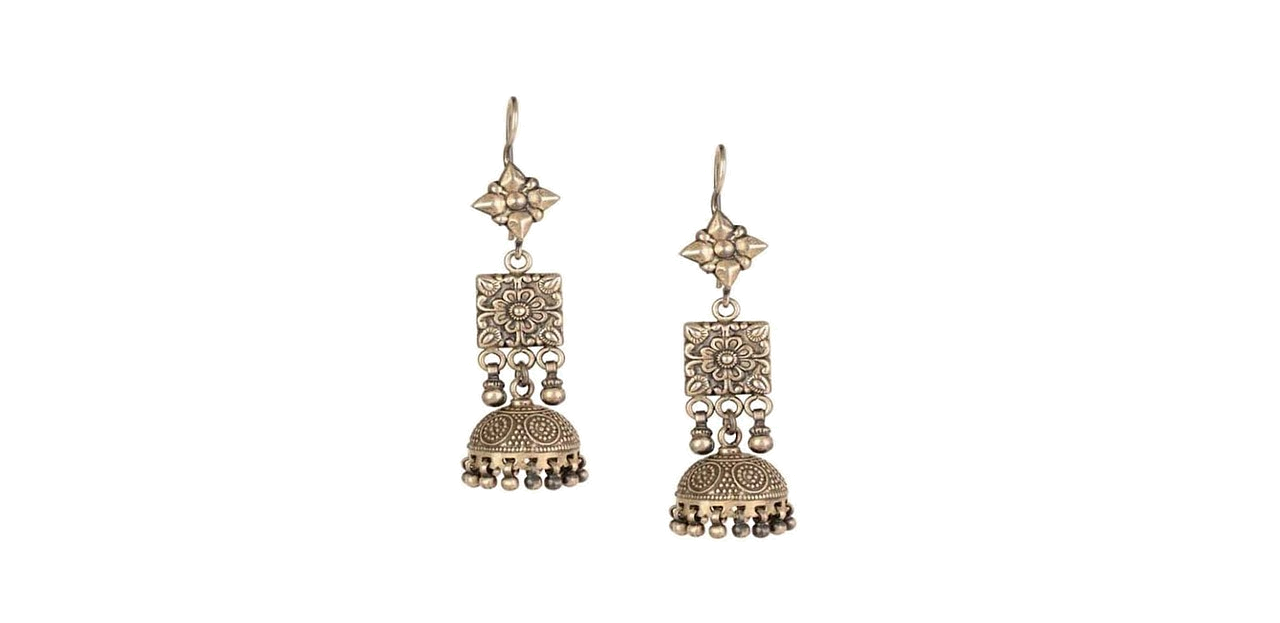 Photo Credit:
CC-0 devishijaipur
Photo Credit:
CC-0 devishijaipur
‘But chacha, we have nothing, you know how much money I earn, I have two children and a wife—’
‘I-I don’t know,’ Sukhdeo said with some pretend hesitation, ‘what about… I don’t know… possessions?’
‘Possessions! What possessions?’ He was damned if he was going to let Sukhdeo get away without having to spell out what he was after.
‘I-I… how am I knowing? I-I mean… things you can sell, perhaps, valuable things…’ It was Shanti who decided to put the old man out of his misery.
‘Sukhdeo Chacha means my jewellery, Pradeep’s father.’ And she turned away and went rummaging among some bundles under the bed.
‘But there’s nothing left, it’s all gone, you remember when my little girl was between life and death, we—’ said Raju.
‘Only your Chachi Lalita said…’ Sukhdeo interrupted, as Shanti came back holding a pair of glittering gold earrings in her hands. They were small miniature crowns the size of a cat’s eyes from which small chains of a fineness rarely seen and the length of a child’s thumb cascaded at the rim, a masterpiece of craftsmanship, made by the one-legged Hamidullah, the Bihari goldsmith whose forefathers made jewellery for Bihari Maharajahs. The man was such a perfectionist, that when a piece he had been working with had not matched his expectation, he went into deep depression and committed suicide by swallowing a small crystal of the potassium cyanide that he used in his work. And Hamidullah himself had said that he was never prouder of anything that he had ever made. Sukhdeo’s eyes popped out. Even Lalita did not own such a splendid item! On the one hand he did not relish depriving his best friend’s son and wife of this unique piece, but this had to be put against the constant vituperations of Lalita if he did not take a firm stand.
‘Theek!’ he said, extending his hand in order to receive this offering, ‘with regret I will have to accept.’ He stopped short, and dropped his hand, adding, ‘If only you knew how I hate doing this to you, but… eh… business is business, and sentiments is sentiments!’ Business is business indeed, said Raju to himself, which is why, Madr Chhott, you eat so much and end up with ulcers and us poor eat mud!
With a slight hesitation, but shrugging slightly, the older man raised a hand and left it just under Shanti’s, as someone holding a bowl anticipating the pouring of water into it. Shanti looked at Raju who felt tears welling up in his eyes. Shanti was completely dry-eyed. She looked at the old zamindar and dropped one earring in his hand. The old man frowned tentatively, and left his hand in the same position, ready to accept the second item. Shanti withdrew her hand, but said nothing. It was Raju who came to her rescue.
‘I think, boss, you will find that the one earring more than covers the rather exorbitant price you are asking for the ghai… and I never stole those goods, I swear on Devi Umma’s soul.’
Sukhdeo protested suggesting they went to Pandit Biswas for arbitration. First, that sanctimonious hypocrite knew nothing about gold, Raju thought, but worse of all, knowing that being on the side of the rich was more profitable to him, he would not dare find against the zamindar. Finally they decided to go see an expert jeweller, Baldeo, who happened to be Sukhdeo’s cousin but who, strangely for a jeweller, had a reputation of honesty second to none in the community. Shanti reluctantly gave Raju the second piece, and there and then the two men made for the boat where Jayant was waiting for the boss. They made their way to Sonarkhali, Jayant following the two men who seemed oblivious of his presence. Raju trusted that, cousin or not, Baldeo was going to be scrupulously fair. The young jeweller’s eyes popped out when he came face to face with such magnificence. He had never seen anything so well-crafted, he said. He took the pieces in his trembling hands shaking his head in disbelief. He was lost in thought for a whole minute, then he shook his head apologetically to his older cousin and said that owing to the rising price of a tola of gold, one earring on its more than covered the cost Sukhdeo had mentioned. The zamindar looked disappointed but had no choice but to accept the verdict. Raju to whom Baldeo had returned the earring then handed it over to Sukhdeo.
‘If you find the money within a month, I will gladly return this piece,’ he said. Hypocrite, pretending generosity, thought Raju.
Sukhdeo then, in a gesture of magnanimity ordered Jayant to take Raju back to Roshankhali.
‘No, thank you, uncle, I will swim…’ sad Raju with a bitter laugh, and Sukhdeo looked at the boy he had much loved, with respect and admiration, that he could make a joke — albeit a bitter one — under the circumstances. He stepped on the boat, and Jayant who had been following the proceedings in silence, had tears in his faithful-dog eyes. Raju found himself inexplicably annoyed at this, but said nothing.
For a while, neither man said a word. Jayant rowed his little craft thoughtfully whilst Raju sat with his head in his hands, prey to black thoughts the like of which he had never entertained before. Suddenly he raised his head and caught Jayant’s gaze. Why am I angry with Jayant? He was always my true friend. He smiled at him apologetically. After Sukhdeo had got off, Jayant grabbed his friend’s arm and squeezed it in a gesture of solidarity.
‘Jayant, I will tell you a secret, keep it to yourself. I am not going to stay in this fucking place anymore,’ and he told him about Mahendra, and the places beyond the sea where a man could live in dignity and make a fortune. Yes, he would go to, what was the name of that place the Gujarati man had mentioned? Mareeshush, Marsheesh? Jayant’s eyes opened wide. He wanted to know more, and Raju told him what little he had learnt, whereupon the boatman, also an impulsive man, asked if he could join him. He had lost his parents in the floods and had no one to depend upon him, and Raju was his best friend and mentor. Raju was considerably cheered by his friend’s sudden decision. We’ll go together, he said joyfully.
Shanti was surprised when she saw Raju looking so pleased with himself, and supposed that it was because a big burden had been taken from his shoulders. Negligently he handed over to her the salvaged earring, and told her what Baldeo had said. Being a pessimist by nature, she had assumed that Sukhdeo would have ended up with both. That was the moment he chose to reveal to her his intention of leaving the Sundarbans. Shocked by the suddenness of it all, she lost her calm and asked him if she had lost his reasons. She was flabbergasted, said nothing and took to her bed with a wifely headache.
Raju had not expected her to react like this. Why did she not understand that there was no future in this weather-beaten, disease-ridden, dangerous mangrove forest with its man-eating tigers and cobras, its mosquitoes and its nauseating odours, where you walked knee-deep in shit and mud. Why could she not see that sometimes one had to take risks. This place Mahendra had talked about seemed like a paradise. Suddenly he realised that Shanti was not necessarily against the idea of leaving here, but hated not being asked for her opinion about leaving, first. He had to make amends, he tiptoed towards the bed and lay besides her and put an arm around her, but she pushed it away.
‘Rani, I was thinking about you, about the children, we have no future in this place.’ And he gently he pulled her towards him, and this time she did not resist. He tickled her under her armpits and she smiled reluctantly. This place, Mar…sheesh, he explained, was exactly what they needed, it is nice and warm, there are no beasts, no floods, and there is always work, no one goes hungry, the Angrezi makes sure everybody has a full belly, and you work a few years and when your pockets are bulging with Rupayyahs, you come back and start your own business.
‘Arrey Pradeep’s father, you are such a dreamer, how can such a place exist? How are we to get there? Who is to pay the boatman? How long does it take to get there?’ Raju laughed and told her all he had heard, that the Angrezi paid the boatman and it took no more than a day or two… it could not take more, could it? I never asked about the distance.
By now, she was in his arms, and whilst talking he had been holding her tighter and tighter, and neither was surprised when in no time at all they found themselves intertwined and aroused like they had rarely been before. As he penetrated her he was filled with an elation which he felt no king living in his palace, covered in diamonds and eating badam halwa, full of almonds and ghee all day long had ever felt before. Shanti too was overwhelmed by a well-being she could not think was possible on the day when she had lost her most cherished material possession. Her man certainly knew how to do things. Yes, she thought, my man is right, we have no future here, if he takes me to the edge of the world and beyond no harm will come to me or my children. His heart is so pure and innocent, how can any God not protect him? And may God burn the ears of that horrid woman like hot coals when she wears my mother’s gift to me.
 Photo Credit:
CC-BY Frances Voon
Photo Credit:
CC-BY Frances Voon

